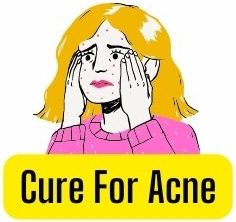It is estimated that approximately 85% of teenagers experience acne during their adolescent years, a skin condition that can cause significant distress and self-consciousness.
Acne typically emerges due to hormonal changes associated with puberty, which result in increased production of sebum (oil) and subsequent blockage of hair follicles.
As parents, it is crucial to be informed about the causes and treatment options for adolescent acne in order to provide support and guidance during this challenging period.
This article aims to provide an evidence-based understanding of the factors contributing to adolescent acne, as well as explore various treatment options available for managing the condition.
Additionally, skincare tips suited specifically for teenagers will be discussed, equipping parents with practical knowledge on how to maintain healthy skin habits. Furthermore, the importance of emotional support during this sensitive time will be emphasized along with advice on when professional help may be necessary.
By gaining a comprehensive understanding of adolescent acne, parents can empower themselves and their teens with strategies for navigating through this common yet often distressing experience.
Key Takeaways
– Adolescent acne is a common skin condition caused by hormonal changes associated with puberty.
– Topical treatments, hormonal solutions, and professional help are available to manage and alleviate the symptoms of acne.
– Certain practices such as cleansing, exfoliating, moisturizing, and sun protection can help teenagers maintain their skin’s health while navigating through puberty.
– Emotional resilience and parental support play critical roles in helping teenagers overcome challenges related to adolescent acne and puberty.
Understanding the Causes of Adolescent Acne
A complex interplay of factors, including hormonal fluctuations and genetic predisposition, contributes to the development of adolescent acne, a common yet potentially distressing skin condition.
The onset of puberty triggers an increase in androgen production, which leads to enlarged sebaceous glands that produce more sebum—an oily substance that can clog hair follicles and create a favorable environment for bacteria growth.
Additionally, research has indicated a possible link between dietary habits and acne severity; specifically, diets high in refined carbohydrates, dairy products, or foods with high glycemic loads may exacerbate the condition.
Understanding these underlying causes is crucial for parents as they guide their adolescents through this challenging period.
By being aware of the hormonal changes occurring during puberty and promoting healthy dietary choices that minimize potential aggravating factors, parents can help ease their teenagers’ anxiety about acne while empowering them with knowledge to make informed decisions about managing their skin health.
Providing support and empathy not only fosters a sense of freedom from societal pressures but also allows adolescents to navigate this stage with increased confidence and self-assuredness.
Acne Treatment Options
Numerous treatment options are available to help manage and alleviate the symptoms of this skin condition, enabling young individuals to regain their confidence and enjoy a clearer complexion.
Acne treatment approaches can be broadly divided into two categories: topical treatments and hormonal solutions.
By understanding the various types of treatments, parents can provide support to their adolescents in choosing the most appropriate therapy for their specific acne condition.
- Topical treatments: These include over-the-counter (OTC) creams, gels, or lotions that contain active ingredients such as benzoyl peroxide, salicylic acid, or azelaic acid. These ingredients work by reducing inflammation, unclogging pores, and killing acne-causing bacteria.
- Prescription topical treatments: For more severe cases of acne that do not improve with OTC products, healthcare providers may prescribe stronger topical medications like retinoids or antibiotics.
- Hormonal solutions: In some cases, hormonal imbalances may contribute to adolescent acne development. Healthcare providers can prescribe oral contraceptives or other hormone-regulating medications for female patients experiencing hormonally-driven breakouts.
- Other medical interventions: If necessary, dermatologists may recommend additional therapies such as chemical peels, laser treatments, or even oral isotretinoin (also known as Accutane) for particularly severe or persistent cases of acne.
It is crucial for parents to encourage open communication with their adolescents about their skin concerns while ensuring they understand that seeking professional advice is a viable option.
This will empower them with knowledge and freedom in making informed decisions regarding their skincare journey and overall well-being during this challenging developmental stage.
Skincare Tips for Teens
To ensure a healthy and radiant complexion during the teenage years, it is vital to adopt effective skincare habits that cater to the unique needs of adolescent skin.
Teenagers experience various hormonal changes that can lead to acne breakouts and oily skin, making it essential for them to maintain good hygiene practices and promote hormonal balance.
Implementing a suitable skincare routine early on not only helps in managing existing skin issues but also prevents long-term damage caused by exposure to environmental factors such as pollution and UV rays.
Research suggests that certain practices can help teenagers maintain their skin’s health while navigating through puberty. The table below highlights four key aspects of an effective skincare routine:
| Skincare Tip | Purpose |
|---|---|
| Cleansing | Gently removes dirt, oil, and makeup |
| Exfoliating | Removes dead skin cells, unclogs pores |
| Moisturizing | Hydrates the skin, maintains its natural moisture barrier |
| Sun Protection | Shields against harmful UV rays, prevents premature aging |
By following these tips consistently, teenagers can achieve healthier-looking skin while balancing their hormones. Parents should encourage their adolescents to practice proper teen hygiene habits by providing them with appropriate products and resources.
It is important for parents to understand that every teenager’s journey through puberty is unique; therefore, they should be patient and supportive when addressing any skincare concerns or challenges faced by their child.
Ultimately, fostering a sense of independence in managing personal care routines will contribute positively towards building self-esteem and confidence throughout adolescence.
Supporting Your Teen Emotionally
Navigating the tumultuous teenage years can be challenging, making it crucial for caregivers to provide emotional support and guidance that fosters resilience and healthy coping strategies in their adolescents.
Emotional resilience is a critical skill that enables teens to adapt to stressors and setbacks, while parental empathy plays a vital role in helping them feel understood and validated.
By cultivating both of these elements within the parent-child relationship, caregivers can empower their teens to navigate the complexities of puberty and adolescent acne with confidence.
One effective approach for promoting emotional resilience and fostering parental empathy involves:
- Encouraging open communication: Establishing an environment where teens feel comfortable discussing their thoughts, feelings, and concerns about puberty-related issues like acne can help alleviate anxiety surrounding such topics. This also provides parents with insights into their teen’s experience, allowing them to respond empathetically.
- Validating emotions: Recognizing and validating your teen’s feelings around acne or other challenges they may face during adolescence is essential for establishing trust. Acknowledging that these issues are valid demonstrates empathy while providing reassurance that they are not alone in facing such difficulties.
- Providing guidance on healthy coping strategies: Helping your teen develop tools for managing stressors related to puberty or acne is crucial. Encourage them to explore various self-care techniques (e.g., meditation or physical activity), seek professional guidance when needed, or engage in social activities that promote positive connections with peers.
By actively supporting their teenager emotionally through this difficult period, caregivers not only strengthen the bond between themselves and their child but also equip them with valuable skills necessary for navigating life’s challenges beyond adolescence.
When to Seek Professional Help
Recognizing the appropriate moment to seek professional assistance for a teenager experiencing emotional distress or persistent skin conditions is crucial in ensuring their well-being and fostering healthy development.
Early intervention plays a significant role in addressing both physical and psychological issues related to acne, as research has consistently shown that timely treatment can lead to better long-term outcomes.
Factors such as hormonal fluctuations during puberty contribute to the severity of acne, which may exacerbate feelings of self-consciousness or embarrassment among adolescents.
As a result, it is essential for parents to be vigilant about any changes in their teenager’s behavior or skin condition that signal the need for professional help.
A variety of circumstances may warrant consultation with a healthcare provider, including worsening acne despite consistent home care efforts, signs of infection such as redness or swelling around pimples, and scarring caused by severe breakouts.
Additionally, if an adolescent exhibits increased anxiety, depression, social withdrawal, or other emotional concerns related to their acne or body image in general, it is paramount to seek out mental health support from qualified professionals.
In doing so, parents empower their teenagers with the necessary tools and resources required for overcoming challenges associated with puberty and adolescent acne while fostering resilience and self-confidence throughout this critical developmental stage.
Frequently Asked Questions
How can diet and lifestyle choices impact adolescent acne?
Diet and lifestyle choices significantly influence adolescent acne through the gut health connection and stress management. Optimal digestive function, balanced nutrition, and effective stress reduction techniques contribute to a clearer complexion during adolescence.
Are there any specific skin care products or ingredients to avoid during puberty?
Navigating the maze of skincare products, avoiding harmful ingredients is crucial to prevent allergic reactions during puberty. Opt for gentle, non-comedogenic formulations that respect the skin’s delicate balance and promote liberation from adolescent acne.
How does hormonal fluctuation in girls during their menstrual cycle affect acne?
Hormonal fluctuations during the menstrual cycle significantly impact acne in girls, as increased hormone levels exacerbate sebum production. Menstrual hygiene and stress management techniques can mitigate these adverse effects on skin health.
Can regular exercise help in reducing acne in teenagers?
Teen exercise benefits extend beyond physical health, as research suggests acne prevention workouts may alleviate adolescent breakouts. Regular physical activity promotes circulation and reduces stress, potentially contributing to clearer skin for teenagers.
What precautions should be taken when using makeup during adolescence to prevent acne?
To prevent acne during adolescence, prioritizing makeup hygiene and utilizing non-comedogenic options is imperative. Thorough cleansing, replacing applicators regularly, and selecting products that do not clog pores can significantly reduce acne risk.
Conclusion
In conclusion, adolescent acne presents a significant challenge for both teenagers and their parents. The combination of hormonal fluctuations, increased oil production, and other factors can create an environment ripe for breakouts.
Implementing effective skincare strategies and seeking appropriate treatment options could work wonders in alleviating the distressing effects of this common skin issue.
It is crucial to address not only the physical manifestations but also the emotional impact that acne may have on adolescents. Providing unwavering support and reassurance is imperative for bolstering their confidence while they navigate this tumultuous period in their lives.
Parents should remain vigilant in identifying signs of emotional distress stemming from acne-related issues and seek professional help when necessary to ensure the well-being of their child remains paramount throughout this seemingly insurmountable ordeal.





